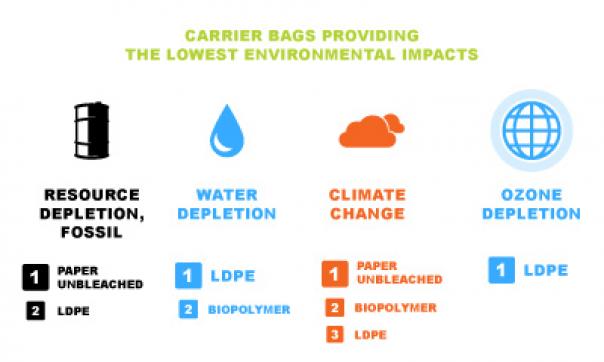
Undertaken by the Danish Environment Protection Agency, the life cycle analysis (LCA) compared the use of different types of carrier bags to determine “which has the lowest environmental footprint by default, and how they should be used to fully achieve the lowest environmental footprint”.
The results are as below:
- Low-density polyethylene (LDPE) - commonly used to produce carrier bags - has the best environmental footprint
- Unbleached paper and biopolymers had the best impact in terms of greenhouse gas emissions
- Organic cotton bags need to be reused 20,000 times before having a lower environmental impact than a LDPE bag
While the organisation admits that the findings cannot be transferred to all food and beverage service packaging, it does say that “it demonstrates that what we do with our packaging has a big influence on environmental impact".
A spokesman added: “More efforts are needed to understand the potential environmental implications of packaging used in each scenario before we make far-reaching decisions” – warning that “we should not take simplistic approaches to complex policy challenges”.